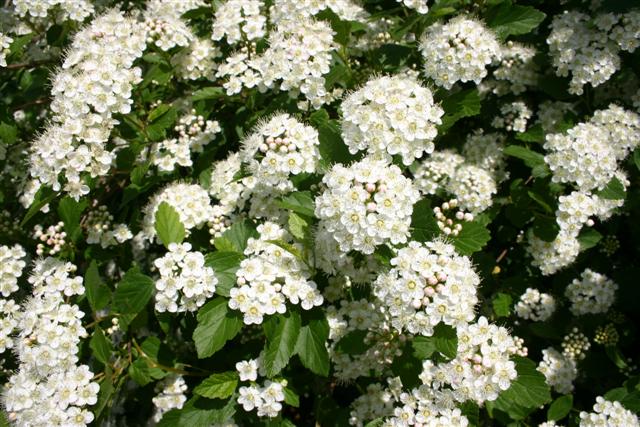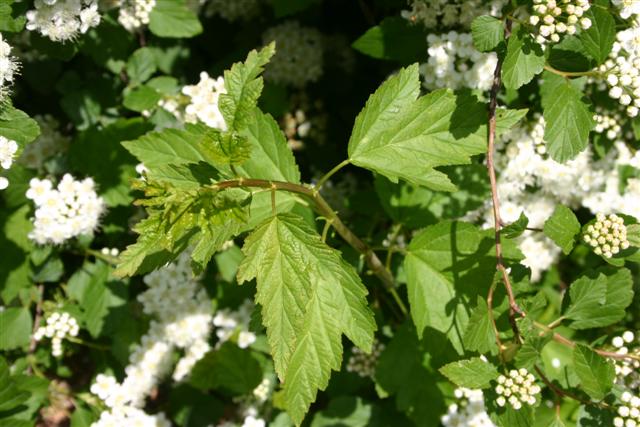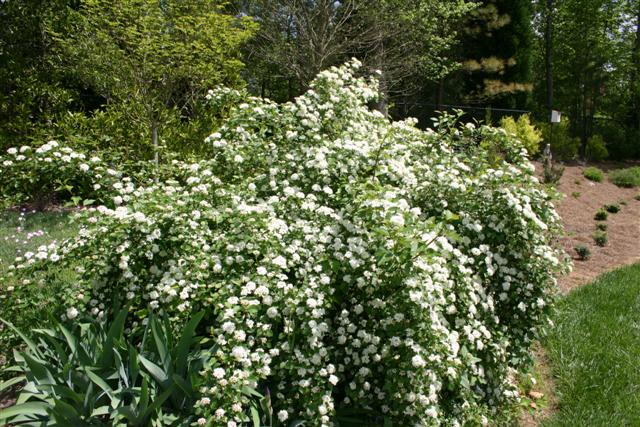Georgia Gardener Newsletter Cool Plant: February 19, 2009
| Ninebark |
| Physocarpus opulifolius |

|
Need help?
Check out our Services.
We're also offering a 10% discount
for February appointments
|
|
Flower clusters in late April |
Species Native Range: Central/Eastern U.S. & Canada
Hardiness: USDA Zones 2-8(9)
Mature Size: 6-8 feet tall and wide
Exposure: Full sun
Soil: Average, well-drained
Drought Tolerance: Good
Ease of Culture: Easy
I rarely encounter ninebark in the various landscapes that I visit. So, imagine my surprise when I discovered this beauty in
full bloom several years ago. Ninebark is a deciduous shrub native to this area that is covered with clusters of white to pale
pink five-petaled flowers in late April and early May. The lobed coarse foliage gives the plant an interesting texture during the
spring and summer.
Swollen fruit-like red seeds develop in late summer. In winter, the leaves drop to reveal mature stems with layers of
reddish peeling bark, hence the name.
Ninebark can grow to a somewhat large and sprawling shrub so make sure to give it plenty of room so that constant pruning won't
be necessary. If desired, prune the oldest branches back to the base right after flowering.

|

|
|
Coarse foliage
|
Arching habit
|
Grow ninebark in full sun in soil that is loose and well-drained, although the shrub tolerates a wide range of soils, except
poorly draining. Ninebark should be grown as a specimen or in mass to form a hedge or back of the border seasonal screen.
Good companion plants include roses, Virginia sweetspire, loropetalum, viburnums, irises, etc. Several cultivars of this
plant are available in the trade.
Ninebark can be susceptible to deer browsing.
Sources
This plant may be a bit tricky to find but it's worth the look. I would begin with nurseries listed on the
web site of the Georgia Native Plant Society
Georgia Native Plant Society Nursery Listing
Copyright © 2009 by Theresa Schrum - All rights reserved
No part of this website may be reproduced without the expressed written permission of Theresa Schrum



